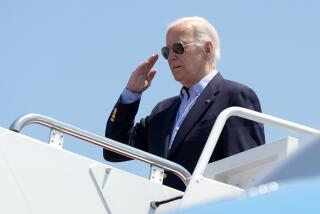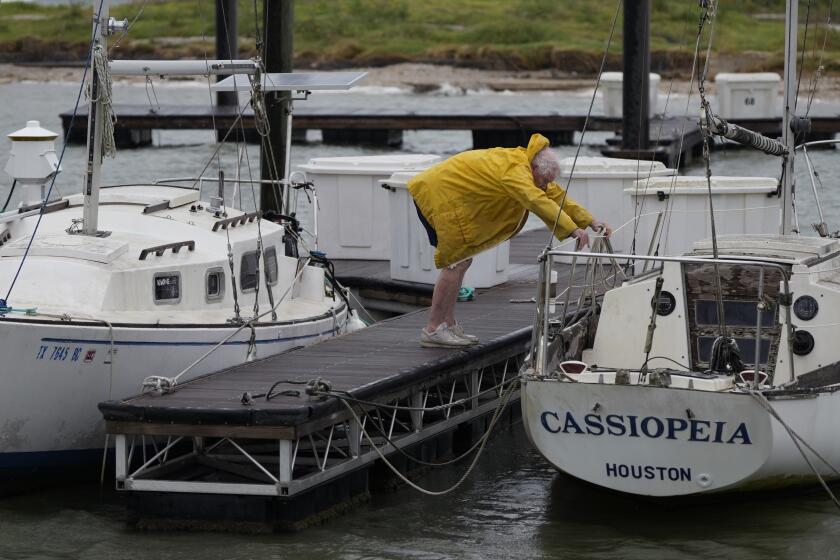Panel Named to Study U.S. Policy on South Africa
Secretary of State George P. Shultz on Thursday named a blue-ribbon advisory committee, including two former Cabinet officers, to conduct a yearlong study of U.S. policy toward white-ruled South Africa.
“This is a serious undertaking, one that the President and I hope will lead to a bipartisan consensus that is a positive and necessary force behind any effective foreign policy,” Shultz said as he introduced the 12-member panel of businessmen, lawyers and academics.
“I’m looking for straight talk on our policy within the context of the unanimous U.S. position that apartheid must go, that we want it to go in a peaceful way, without a blood bath,” Shultz said.
Frank T. Cary, chairman of the executive committee of IBM, and William T. Coleman Jr., a Philadelphia lawyer who was transportation secretary in the Gerald R. Ford Administration, were named co-chairmen.
Sees Crucial Period
Shultz said 1986 may be a crucial year in South Africa, determining whether it “can emerge as a country at peace with itself and its neighbors, or whether it will drift further into violent strife at home and ever greater international isolation.”
The committee members were directed to submit their report by next December. However, Shultz said that the State Department will “welcome their advice as we go along, and we’ll feel free to try out any ideas on them.”
Shultz said he assumed the committee would travel to South Africa and probably would seek to interview a wide range of people, including members of the outlawed African National Congress.
Shultz said the committee’s “recommendations will help us chart our course for the future.” However, he ruled out the possibility of a rupture of all ties with the Pretoria government.
Will ‘Stay Engaged’
“We intend to stay engaged,” he said. “We don’t intend to walk away from the situation in South Africa. And the fact that we have a committee like this shows that commitment to stay engaged. . . . The issue is, what is the constructive way? How do we have an impact for the goals that we seek? And the committee has, certainly, a free field to give us their best advice.”
Other members include Griffin B. Bell, an Atlanta lawyer and attorney general in the Jimmy Carter Administration; John Dellenback, president of the Christian College Coalition and a former congressman; Lawrence S. Eagleburger, former under secretary of state and president of Kissinger Associates; Father Timothy Healy, president of Georgetown University; Vernon E. Jordan Jr., Washington lawyer and former director of the National Urban League; Helene Kaplan, a New York attorney and chairman of the Carnegie Corp. and of Barnard College; Franklin Thomas, president of the Ford Foundation; Owen Bieber, president of the United Auto Workers union; Roger B. Smith, chairman of General Motors Corp., and Leon Sullivan, pastor of New York’s Zion Baptist Church and author of the Sullivan Principles, a code of conduct adopted by many U.S. corporations doing business in South Africa.
More to Read
Start your day right
Sign up for Essential California for news, features and recommendations from the L.A. Times and beyond in your inbox six days a week.
You may occasionally receive promotional content from the Los Angeles Times.






